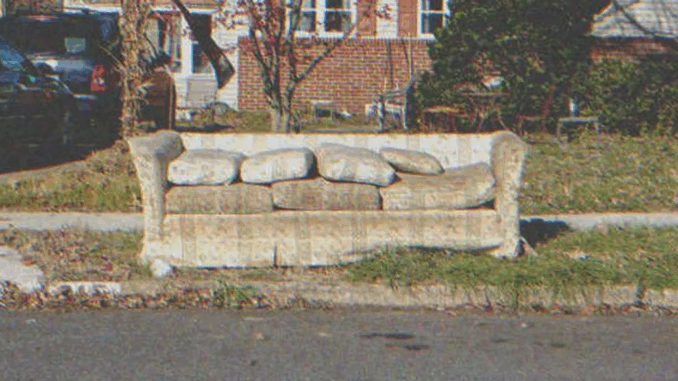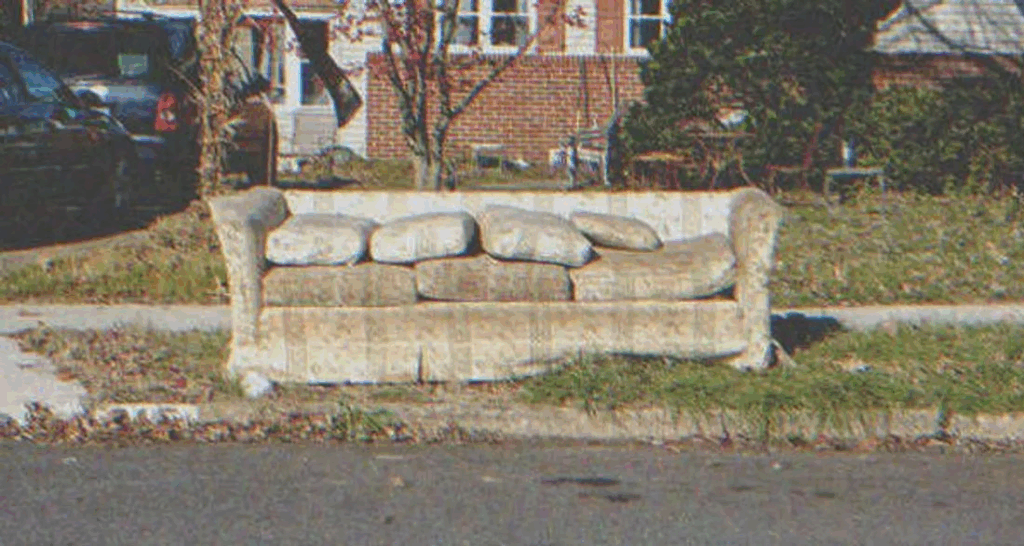

The Couch That Hid a Grandmother’s Love
Deborah Marks was a young single mom raising two little kids all on her own. Life wasn’t easy—there were bills to pay, meals to cook, and endless worries—but when her grandmother Tessa got sick, Deborah didn’t even hesitate. She stepped in right away to help. For her, caring for Tessa wasn’t a chore. It was a chance to give back.
Tessa had always been there for Deborah, especially when her own mother, Martha, had been cold and distant. While Martha was too busy or uninterested to show love, Tessa had filled Deborah’s life with warmth, hugs, stories, and comfort. So now that Tessa was in the final stages of her illness, Deborah knew what she had to do.
When Tessa softly asked, “Please… I want to die at home, not in some hospital,” Deborah didn’t think twice.
She took unpaid leave from work for six months, packed up her things, and moved into her grandmother’s house with her two kids. She knew it would be hard, but she wanted Tessa’s final days to be full of peace and love.
Meanwhile, Martha, her own daughter, didn’t even blink. She had booked a three-month luxury world cruise and said she didn’t plan on canceling it “just to sit around with a dying old woman.” And she didn’t. While Tessa suffered and Deborah cared for her day and night, Martha was sipping cocktails on a yacht, posting selfies in Italy, Greece, and Dubai.
Deborah washed Tessa, helped her eat, cleaned her bedsheets, and sat beside her every night, holding her hand. When the pain eased, they would talk. Tessa would share memories—how she met her husband, what her childhood was like, the names of old neighbors, the dreams she once had.
Every night, Deborah kissed her wrinkled hand and whispered, “I love you, Granny. You’ll always be in my heart.”
And Tessa, with tears in her eyes, would whisper, “You’ve always been the daughter I wished I had.”
Then one quiet evening, while Deborah was holding her grandmother’s hand and brushing her hair, Tessa simply smiled… and never woke up again. Her last breath was peaceful, and her last sight was Deborah’s loving face.
Deborah cried, holding Tessa’s small body close, her tears soaking into the nightgown. But deep inside, she knew her grandmother was finally free from the pain.
Martha had returned from her cruise only a few days before, but she refused to be there. She’d even said, “The smell of sick people makes me gag,” loud enough for poor Tessa to hear.
Still, Deborah made the call. “Mom… Granny’s gone. If you want to come say goodbye…”
Martha replied coldly, “I’ll see her at the service, won’t I? Now we need to get the death certificate and contact the lawyer. The estate has to go into probate.”
“The estate?” Deborah repeated, confused.
“Oh Deborah, don’t be ridiculous,” Martha snapped. “The house, the jewelry—do you know how much that stuff is worth? It’s time we start organizing things properly.”
“You’re already thinking about that?” Deborah said in disbelief. “She’s not even cold—”
“Because I’m not a weak, sentimental fool like you,” Martha interrupted. “Unlike you and my mother, I don’t waste time crying. I get things done.”
Deborah was too stunned to argue. Just days after the funeral, the lawyer called them in for the reading of Tessa’s will.
Martha looked smug, already imagining dollar signs. But the will was surprisingly short.
Tessa had left the house and everything in it to Martha—with one exception:
The old peach-colored couch in the parlor was to go to Deborah.
Martha burst into laughter. “That mangy thing? Ugh! If you want it, you’d better come and pick it up by Friday. I’m putting this house on the market.”
Deborah didn’t say a word. She called a friend who owned a truck and arranged to pick up the couch. It was heavy and faded, with worn-out fabric and squeaky springs. But to Deborah, it was priceless. She placed it in her small living room and started cleaning it.
As she lifted one of the cushions, she felt something strange underneath. She turned the cushion over and noticed a zipper sewn into the lining. Her heart beat faster. She pulled it open—and inside was a soft black velvet bag.
Shaking, she reached in and pulled out several jewelry boxes… and an envelope with her name on it.
With trembling hands, Deborah opened the letter and read her grandmother’s neat handwriting:
My dearest Debbie,
If you’re reading this, it means you found my little hiding spot. I wanted to leave you the jewels my grandmother passed down to me—but I knew Martha would find a way to cheat you. She’s clever, but she’s also greedy and cold. So I tucked them away in the one place I knew you’d find—our favorite couch.These gems are yours now. Use them to build the life you deserve.
Remember me, my darling. And one day, pass this love and legacy to your own granddaughter.
I love you always,
Granny
Tears rolled down Deborah’s cheeks as she opened the boxes. Necklaces, rings, earrings, brooches—they all sparkled in the light, more beautiful than anything she’d ever owned. But the greatest treasure wasn’t the gems. It was her grandmother’s love, hidden in a place only Deborah would think to look.
Meanwhile, Martha tore the house apart looking for the missing jewels. She flipped mattresses, ripped open drawers, and even hired someone to break into the walls.
But she never found a thing.
All her greed had gotten her was an empty house and cold silence. And unlike Tessa, she was never truly loved—not even by her own grandchildren.
What can we learn from this story?
Love is the greatest legacy of all. Deborah gave her grandmother comfort, care, and peace in her last days—just like Tessa had once given her. And in return, Tessa left her something far more valuable than money.
As for Martha? Her cold heart left her rich in possessions, but poor in love.
Để lại một phản hồi